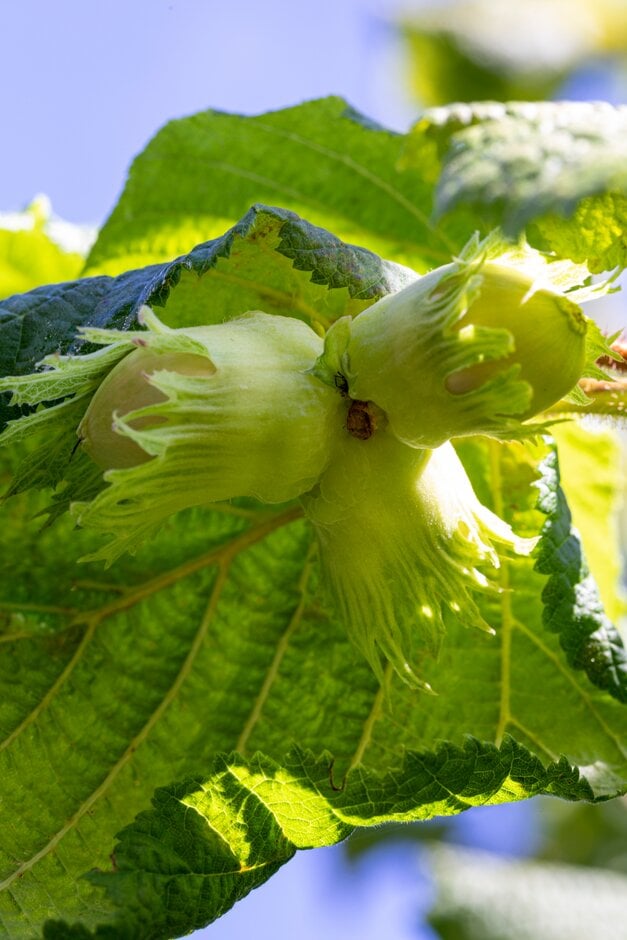Corylus avellana 'Webb's Prize Cob' (F)
hazel 'Webb's Prize Cob'
A large, deciduous shrub with broad, rough, mid-green leaves, hanging, brown and yellow catkins in late winter to early spring, and clusters of large, rounded, edible nuts in autumn. Strong growing and reliable, it is partially self-fertile but crops much better if pollinated by a different cultivar

Buy this plant
Size
Ultimate height
2.5–4 metresTime to ultimate height
5–10 yearsUltimate spread
2.5–4 metresGrowing conditions
Moisture
Moist but well–drained, Well–drainedpH
Alkaline, NeutralColour & scent
| Stem | Flower | Foliage | Fruit | |
| Spring | Yellow Brown | Green | ||
|---|---|---|---|---|
| Summer | Green | |||
| Autumn | Green | Green Brown | ||
| Winter | Yellow Brown |
Position
- Full sun
- Partial shade
Aspect
East–facing or South–facing or West–facing
Exposure
Sheltered Hardiness
H6Botanical details
- Family
- Betulaceae
- Native to GB / Ireland
- No
- Foliage
- Deciduous
- Habit
- Bushy
- Genus
Corylus are deciduous trees and large shrubs with broad leaves, and showy male catkins in early spring, followed by edible nuts
- Name status
Accepted
- Horticultural Group
- This genus produces fruit, but not necessarily edible fruit
How to grow
Cultivation
Does best on light, sandy, well-drained soil. For nut production, grow as a goblet-shaped bush, keeping clear soil in a 60cm radius around the trunk. See cobnuts and filberts
Propagation
Propagate by layering or stooling or removing rooted suckers
Suggested planting locations and garden types
- Cottage and informal garden
- Wildlife gardens
- Hedging and screens
- Edible fruit
Pruning
Prune in August, by brutting or breaking sideshoots half way along their length, followed by shortening the brutted shoots to three to four buds when the catkins are shedding pollen in late winter. When necessary, remove up to one third of old, overcrowded shoots back to the main branches
Pests
May be susceptible to caterpillars, gall mites, aphids and sawflies. Squirrels like to feed on the nuts
Diseases
May be susceptible to honey fungus, silver leaf and powdery mildews
Get involved
The RHS is the UK’s gardening charity, helping people and plants to grow - nurturing a healthier, happier world, one person and one plant at a time.